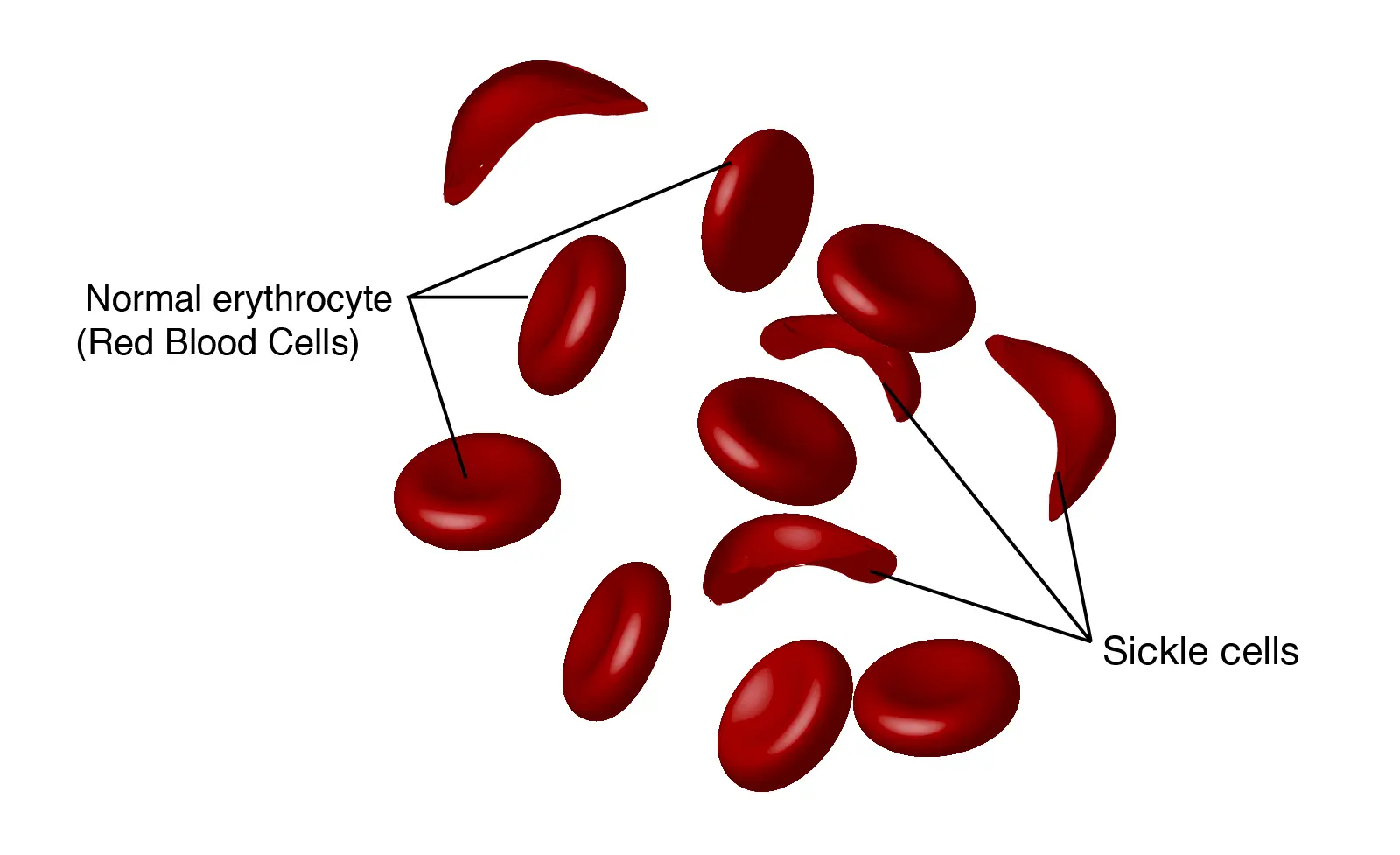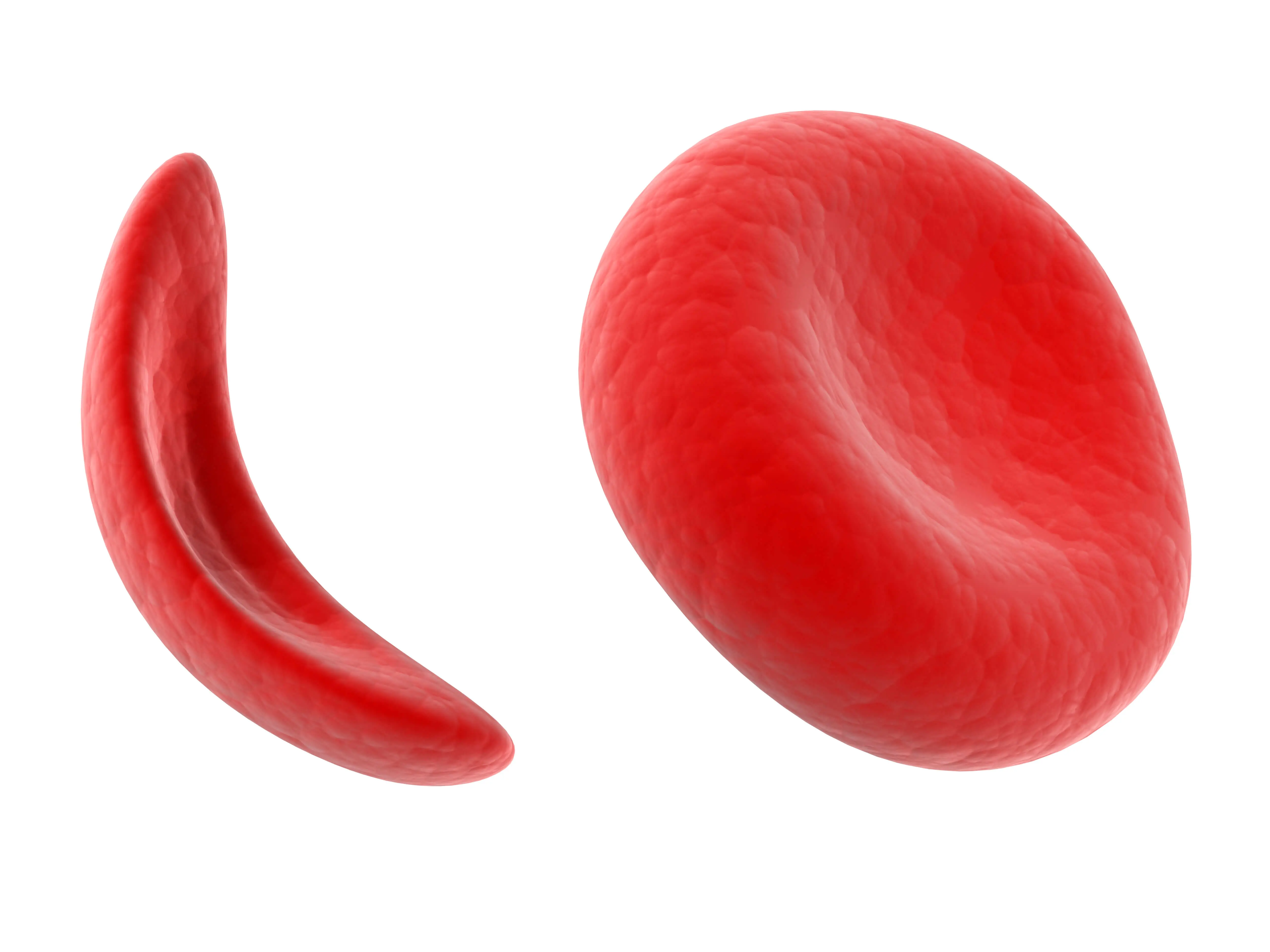Can Sickle Cell Anemia be Cured?
No
While treatments can alleviate symptoms and complications, there is no cure for sickle cell anemia

What is Sickle Cell Anemia?
Sickle cell anemia is a genetic blood disorder characterized by abnormal hemoglobin, leading to misshapen red blood cells. Treatment may include medications, blood transfusions, and, in some cases, stem cell transplantation. Regular monitoring is important for assessing blood counts, managing symptoms, and preventing complications.

Clinical Aspects

Characteristics
Inherited blood disorder characterized by abnormal hemoglobin, leading to misshapen red blood cells that can cause blockages in blood vessels

Symptoms
Fatigue, pain, jaundice, susceptibility to infections

Diagnosis
Blood tests, sometimes genetic testing

Prognosis
Variable, depends on severity and complications

Complications
Anemia, potential for vaso-occlusive crises
Etiology and Treatment

Causes
Genetic mutation affecting hemoglobin

Treatments
Blood transfusions, medications (hydroxyurea), bone marrow transplant

Prevention
Blood transfusions, medications (hydroxyurea), bone marrow transplant
Public Health and Patient Perspectives

Epidemiology
Common in individuals of African, Mediterranean, or Middle Eastern descent

Patient Perspectives
Lifelong management tailored to symptoms
This information is for general understanding and is not a substitute for professional medical advice. Always consult with healthcare providers for accurate and personalized information related to your health.
Share: